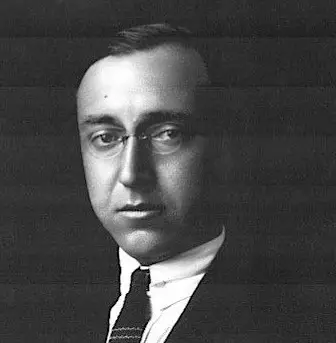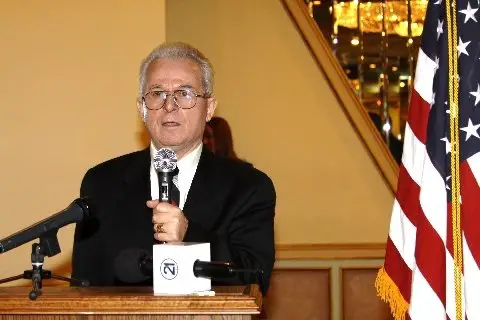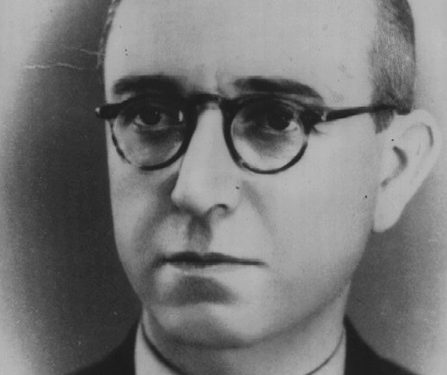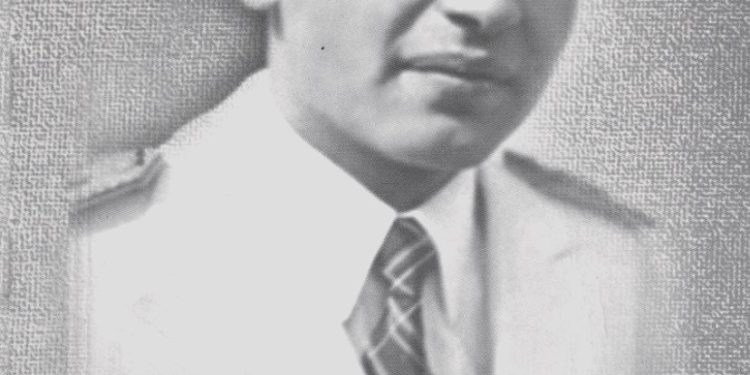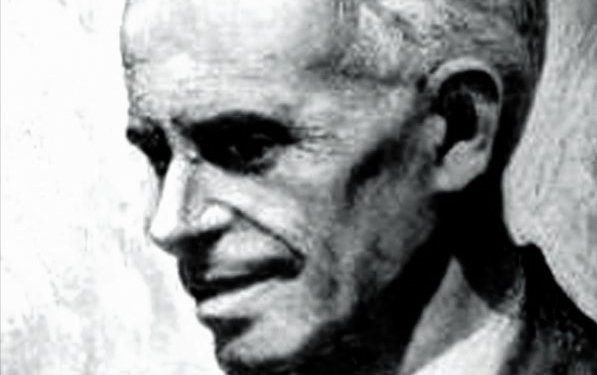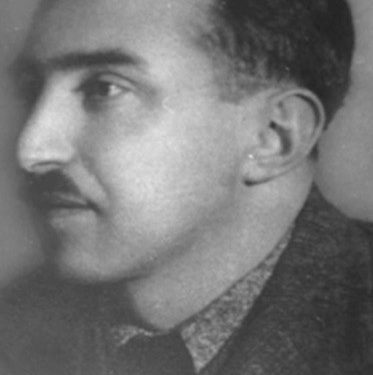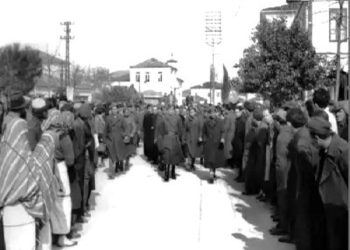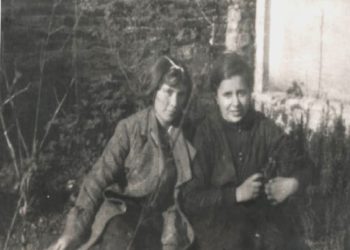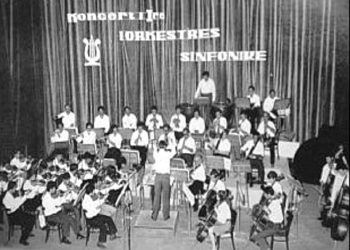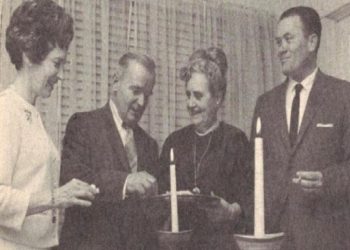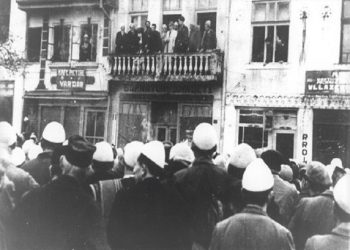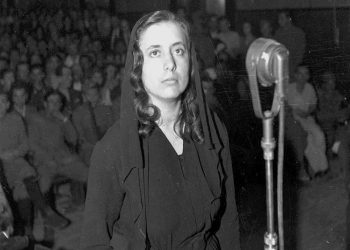By Prenjo IMERAJ
Second part
Memorie.al / The infamous communist castle prison of Burrel will remain in the history of the Albanian nation as a black stain, where some of the best sons, the most nationalists, were imprisoned, suffered the horrors of inhuman torture, died and were buried without graves. loyalists, the staunchest anti-communists and the most educated intellectuals in the most renowned universities of Europe and beyond. There, apart from Xhevat Korça, Koço Tasi, Vissarion Xhuvani, Mihal Zallari, Sokrat Dodbiba, Gjergj Kokoshi, Salih Vuçiterni, Sami Bitincka, Nino Kurti, Aleksandër Çurçia, At Pjetër Mëshkalla, Dom Shtjefën Kurti, Gjon Shllaku, Tefik removed the black olives. Mborja, Hysni Alimerko, Tahir Hoxha, Leonidha Kume, Qemal Vrioni, etc.
Continues from last issue
That senior leader in the Ministry of Internal Affairs gave the order and they immediately took Xhevat Korca out of the hospital and sent him back to prison. Xhevat really suffered himself, but he suffered more for his fellow prisoners. In front of his eyes, for every day, the dead paraded, which the gravedigger guards, with a blanket, buried in the infamous cherry tree of the Burrel extermination prison. They were unfortunate boys and old men who could not endure the tortures and terrible conditions of that horrible prison…
The prisoners in the New Prison of Tirana later testified to an interesting conversation held in the cell between Mehmet Shehu and Xhevat, after the ‘Special Trial’, during which they clearly saw not only the courage and manliness of Xhevat Korça, but and his intelligence and culture, compared to that infamous leader of the communist hierarchy. As the Minister of Internal Affairs, Mehmet Shehu himself visited the New Prison. When he got into the cage where Xhevati was, he recognized him and addressed him with these words:
– “Xhevat Korça took it, you were finally convinced that we fought for the right cause, while you were wrong”?! Xhevati replied something about this issue, then the discussion got complicated by addressing each other; Memet with Xhevat, and the latter with Mr. Minister. Next, they begin to discuss theoretical Marxism. Mehmeti sits on the prisoner’s portable bed and then, surprised by Xhevat Korça’s theoretical preparation in the field of materialistic philosophy, begins to address him as professor.
After that, Xhevati also starts addressing the minister in his name, Mehmet. Not only the prisoners of the dungeon, but also the companions of the Minister, did not smoke, but followed the debate with curiosity. After a moment of discussion, it is pushed to the field of implementation of the October Revolution, in the Soviet Union. Mehmet Shehu listens attentively to Xhevat Korça’s discussion and after a while turns to him asking:
– “What about you, professor, how do you know the October Revolution so well”?! He was stunned when Xhevat Korça answered “… Have you, Mehmet, read the book ‘Ten Days that Shook the World’, by John Reed? Well, know that I have translated it”. Then Mehmet Shehu, turns and says; “…Knowing the communist theory so well, how did you make a mistake and not join us”?! Xhevat Korça turns to him and says: “Exactly because I know it so well, both the theory and the application of this theory in Russia, I became a determined anti-communist”!
The situation immediately became tense. Mehmet Shehu turned yellow in the face, stood up, gave Xhevat Korça a look full of hatred and left without greeting him. Prison life was terrible. Even the most basic items for a minimal living of those poor people were missing there. But the now infamous Burrell prison stood out as special among them all.
Xhevat Korça, with the courage that characterized him, addressed the director of the prison one day, regarding the complete lack of rights of the prisoners, as far as health care is concerned, warning him that if measures are not taken to improve them, he would end his life with a hunger strike. But the ignorant and indifferent director of the prison took those words as a joke and did not give them any importance.
It happened that after two days, Xhevati’s wife and one of the sons appeared at the prison door. They were able to bring some food for their loved one, so much so that with their poverty, they could save it to take them to prison. They did not know that he had gone on hunger strike. On this occasion, the prison officials notified the director, who only then learned that Xhevat Korça had started a hunger strike.
Alarmed, he goes to the cell where Xhevat Korça was and puts pressure on the prisoner, who not only does not waver in his decision, but returns to the director: “I have done and said that I will oppose you with a hunger strike, the only weapon I have, and I don’t give it up. Let me meet his wife and son for the last time”! The director, convinced that he would break it, refuses, and tells him to think about it until the next day.
Looking at the director with disdain, Xhevat Korça says: “You don’t even know what manhood is, and you also don’t understand what each word means. You saw the black page”! The director waited until the next day, hoping that the prisoner would change his mind.
But when his friends told him that; Xhevat Korça does not agree to change the decision, on the one hand he informed the family members that there would be no meeting since a disciplinary measure had been taken against Xhevat Korça, while on the other hand, he immediately informed the general directorate of prisons about this case unprecedented.
Two days later, Kadri Hazbiu arrived in Burrel and escorted the disobedient prisoner to the directorate. The continuing testimony was given by Lawyer Xhevdet Kapshtica, as well as by Mr. Reis Hasho, both co-sufferers, in the same case as Xhevat Korça.
Initially, Kadri Hazbiu had started to treat Xhevat Korca well, even making promises, but when he was convinced that the prisoner was unwavering in his decision, he started using pressure and threats. Xhevat Korça listened to him in silence until the end and then he spoke with full determination:
“Listen here, Kadri Hazbiu! You are in vain trying to break me with pressure. I, with the decision I made, am no longer among the living and, as a consequence, neither exists for me, nor you, nor Enver Hoxha! Do you know how Enver Hoxha looks to me now?
Little (and he pointed his index finger, almost missing his thumb), and tells him that; “I look so small now at Enver Hoxha! Make up your mind that he is going to remove your head from your body”!
The prisoners of Kaushi began to worry more and more every day about the life of their fellow sufferer. He neither ate nor drank. The organs began to weaken, the powers were slowly running out, but the mind was always clear. They began to approach him one after the other, and beg him to stop the hunger strike, for the sake of life, of the family but also of themselves, who were now like brothers, in suffering and thoughts.
Xhevat Korça was just silent, continuing in his Promethean attitude. The friends finally turn to Pater Mishkalla, a highly respected clergyman with a wide culture, for whom it was known that Professor Xhevat Korça had a lot of regard.
Starting from the fifth day of hunger, Patër Mëshkalla did not sleep at night, but stayed by his friend’s head. It seemed and felt that he and Lawyer Xhevdet Kapshtica were the most worried about Xhevati’s life.
During the day, Pater Meshkalla walked through the coop with crossed hands and prayed for his friend’s life, until he finally decided: He slowly approached Xhevat’s corner, sat down on his knees and, rubbing his head, begged him: “Jevat, please, don’t sell your soul to the devil, put someone on strike!” There was a sin with me”!
Xhevat Korça, in a low but convincing voice, answers: “Padre, I have known you as a friend who does not want me to be ashamed. How do you say these words to me now, when my physical strength is leaving me, my logic will leave me, and consequently also my will, and you invite me to become the game of these prison guards, to mock them and say that I do not could I keep my word”?! Pater Meshkalla was deeply moved, he hugged Xhevat Korca and, both in tears, they separated from each other!
In that prison, there was also Gjergj Kokoshi, a former colleague and old acquaintance of Xhevat Korça, but initially with dubious communist ideas. Starting from the first day, when Gjergj Kokoshin was brought to the Burrel Prison, Xhevat Korça had not spoken to Gjergj even once. The reason was simply political.
When during the war years, he had been a professor at the high school in Tirana, he had encouraged most of the students to go out as partisans in the mountains, in the war against the occupier. For Professor Xhevat Korça, Professor Gjergj Kokoshi had influenced the triumph of communism in Albania and, even initially, being in the position of Minister of Education, in Enver Hoxha’s government, and therefore he did not even speak to him.
Everyone was preoccupied with this fact, because no one liked it, that two well-known intellectuals, now co-suffering in the same prison, did not speak to each other. Lawyer Xhevdet Kapshtica once intervened with Xhevati, to talk to Gjergj Kokoshi, and Professor Xhevat Korca’s answer was clear:
“…I don’t understand at all the importance you attach to the fact that I speak to Gjergji or not. I understand that apparently, Gjergji has realized his mistake, in his line-up on the part of the so-called National-Liberator, but what is the importance of this positioning of his today?!
He encouraged the youth to fill the ranks of the partisan squads of that time and with flesh and soul, he preached to them a future, which today, he himself, Gjergji, realized was wrong! And who does this belated awakening of his serve?! The bad is done and the repentance of Gjergj Kokoshi is no longer worth anyone, let alone history…”!
In the last days of Xhevat Korça’s life, encouraged by the other prisoners, Gjergj Kokoshi agreed to go and talk to Xhevat Korça and, thus, convince him to give up his hunger strike. Gjergji accepted and walked slowly towards the corner where Xhevat Korça was resting weakened.
All the other prisoners were following the movements of Professor Gjergj Kokoshi with great attention. The curiosity was great, how and what, in the last moments of his life, Gjergj Kokoshi would say to professor Xhevat Korça, to fill his mind, to give up the hunger strike?
After standing for a few moments, looking painfully at his colleague, he bent down and spoke to him in a friendly way, extending his hand. His hand remained outstretched for a few moments. Finally, Xhevat Korça decided and gave him his hand. Those who followed the scene thought that finally Gjergj Kokoshi would be the reason to convince Xhevat Korça to give up the hunger strike.
However, Gjergj Kokoshi continued: “You Xhevat, you are closing your life with a florin cap. I also wanted to have this courage like you, but unfortunately, I don’t have that man. Therefore, be strong and do not waver in your decision”! He shook her hand for the last time and left.
All the prisoners of Kaush, experienced not only with pain, but also with pride the speech of Gjergj Kokoshi, which was at the same time, not only appreciation for the character of Xhevat Korça, but also a kind of repentance and forgiveness, however late, to that indomitable man. Xhevat Korça finally exhausted their strength. A few days after this happened, he breathed his last, resting on the chest of Lawyer Xhevdet Kapshtica.
This is how the heart of Professor Xhevat Korça, an outstanding nationalist and staunch anti-communist, stopped beating. It was an unprecedented case. Never before had a political prisoner died on hunger strike. There in the communist castle prison of Burrel, Xhevat Korça, erected a monument of immortality to himself.
For the irony of fate, years later, Mehmet Shehu, would be killed or “suicide” without glory. Kadri Hazbiu’s fellow communists would cut off his tongue and then his head, while Enver Hoxha’s memorial, after his death, would be dragged through the streets of Tirana, as an expression of hatred towards the most hated man of the Albanian Nation. Memorie.al




